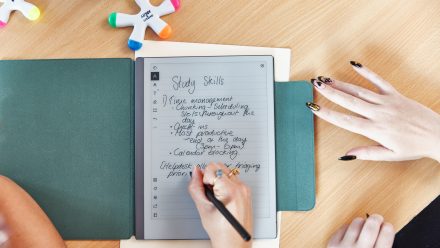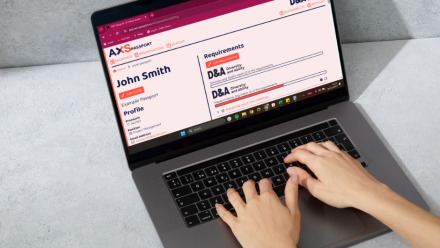Supporting your mental health while working from home
30th March 2020 by Ellie Thompson
With more organisations working online than ever before, keeping connected is more important than ever. Here are some tips from MHFA England and D&A to support your mental health, reduce feelings of isolation, and feel connected with your colleagues while we’re all working remotely.
Although you might have some extra time to sleep without a commute, try and wake up around the same time every day. This helps to stabilise your internal clock and improve your sleep. It’ll also help you to feel less tired, which means you’ll find it easier to concentrate at work. If you can, keep to your usual morning routine as this will help you get into the mindset for working.
Having a good workspace
Try to create a work area that’s separate from your sleeping area if you can, as this will help to prepare you for working and then at the end of the day it’ll be much easier to switch off from work. You don’t need a home office to do this – a small desk set up in a corner of your room, or a laptop at the end of the kitchen table can be just as effective. If you’re working in a very small area, you could try setting up temporary ‘areas’ by hanging a screen or sheet to separate your work area from your bed or living area.
Set up your equipment so that you’ll avoid any physical strain – you can do a quick self-check by visiting
nhs.uk/live-well/healthy-body/how-to-sit-correctly. If you don’t have a chair with back support, you could try adding a firm cushion or pillow.
Keep moving
Exercise has a massive impact on both our physical and mental health. You’ll feel more alert, plus and your concentration and sleep will improve too. If you’re not self-isolating, you could go for a walk or a run before you start work for the day. Or if you haven’t seen The Body Coach’s live PE lessons yet, they start daily at 9am and give a massive boost to energy levels!
No matter what exercise you choose, try to take regular screen breaks and stretch throughout the day. Try to take a set defined lunch break away from your workspace.
Adapt your working style
Keep communication open with your team, as much as possible. Our team have been putting together shared yoga classes, online support groups, a reading and discussion group, wellbeing webinars with guided body scans and a mindful early morning birdsong listening online event which the team took part in.
Phoebe Pennington, Senior Operations and Safeguarding Lead said: “We’re doing video meetings for the operations team every morning and evening to stay connected and catch up/vent/plan our work. We also have a WhatsApp group which we use throughout the day. This helps us keep our spirits up as well as feeling lucky to be distracted by work (and to still have work!).”
While here are some suggestions MHFA England are trying:
- Try using video calls instead of emailing colleagues.
- Quick check-in calls between managers and their teams, at the beginning and at the end of the day.
- Optional Q&A sessions for colleagues to dial in and share any questions or concerns they may have about working from home.
- Share your My Whole Selfie: Creating and sharing a My Whole Selfie is a great way to show your authentic self to your
colleagues. It can also help you feel connected even if you’re working remotely. Find out how
at mhfaengland.org/my-whole-self/selfie-how-to. - Virtual social sessions: if you usually spend time with colleagues doing an activity or exercising, keep this going either online with a phone or webcam.
For more support and information take a look at:
- Mental Health Foundation’s tips for looking after your mental health during the
coronavirus outbreak - Mind: Coronavirus and your wellbeing
- If you’re feeling anxious or isolated, remember that support is out there.
Talk to your Mental Health First Aider at work - If your organisation has this in place, talk to your HR or contact your Employee
Assistance Programme. - Mental health helplines
Samaritans offer free, confidential support 24 hours a day on 116 123.
Find a list of national mental health services and helplines at mentalhealth.org.uk


